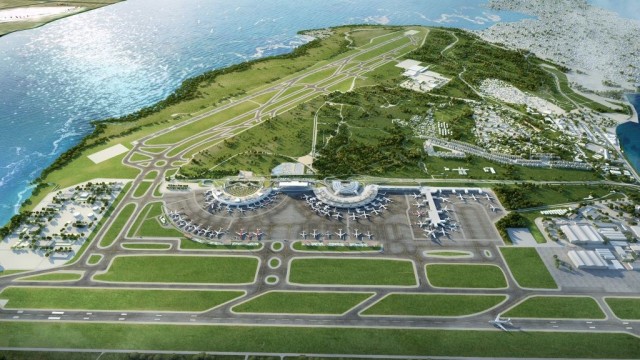
The joint bidding of Santos Dumont and Galeão airports in the second half of next year is positive not only for Rio de Janeiro state, but for the civil aviation system in Brazil as well. There is enough time to design a model for the auction of both assets in 2023. This is the view of experts consulted by Valor, according to whom the auction is possible next year even with a possible shift of government. According to them, the merger of the two airports into a single block will create a system capable of strengthening the city as a hub of internal distribution, without running the risk of increasing fares.
The decision to auction the two airports in a single block in 2023 was announced on Thursday evening by Infrastructure Minister Tarcísio Freitas after the RioGaleão concessionaire, whose controller is Singapore’s Changi, confirmed it had requested the re-bidding of the airport.
For Delmo Pinho, former Secretary of Transportation of Rio de Janeiro and representative of the commerce federation Fecomércio-RJ in the working group that discussed with the federal government the model for the Santos Dumont tender, “it is very bad for the country when a major international operator leaves” a concession. However, Mr. Pinho says that the departure of Changi from Galeão has created a more favorable scenario for Rio to become a relevant hub once again in national civil aviation.
“The new owner of the concession will not shoot himself in the foot, and the result of this can be excellent for Rio and for Brazil. We will have a major competitor in a very important market, which is Rio, and working in a cooperative way”, he says.
According to Mr. Pinho, it is possible to bid the two airports together in the second half of next year even considering the election of a new president. “Nobody will change a modeling that is consensual and well accomplished,” he says, adding that a barrier clause is needed to prevent the participation of concessionaires of assets such as Guarulhos, Viracopos and Brasília in the auction. “We have to impose barrier clauses to avoid a private monopoly.”
Lawyer Luiz Felipe Graziano, partner at Giamundo Neto Advogados, says that the bidding next year is “totally feasible”, even with the dependence on further steps to be taken, such as public hearings and the analysis of the public spending watchdog TCU. “The fuel for making this bid feasible is the convergence of interests,” he says.
Mr. Graziano reminds that the airport assets concession initiative started to be modeled and carried out still in the administration of former president Dilma Rousseff, went on through the Michel Temer term and continued in the Jair Bolsonaro government. “As this went through three administrations with very different profiles, it is possible that the project will survive a change in the presidency.”
Maurício Menezes, partner of the Moreira Menezes Martins law firm, says that uniting the airports will be “a solution in the end,” but ponders that there is a need for a “very broad” dialogue with the private initiative. “It is an opportunity to reflect on the best way [to do the modeling] not only from the public sector’s perspective, but mainly from the private point of view.”
Source: Valor International
